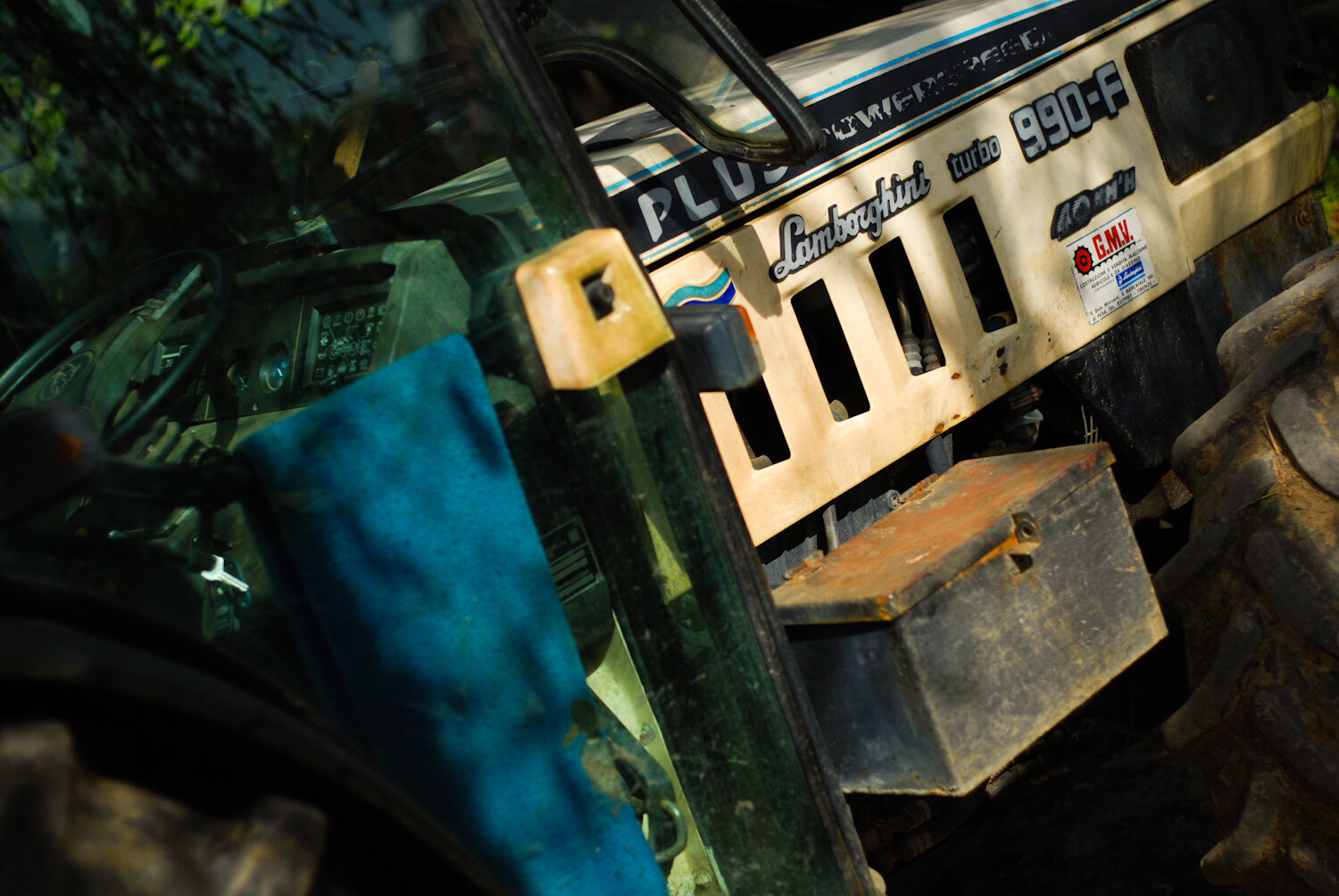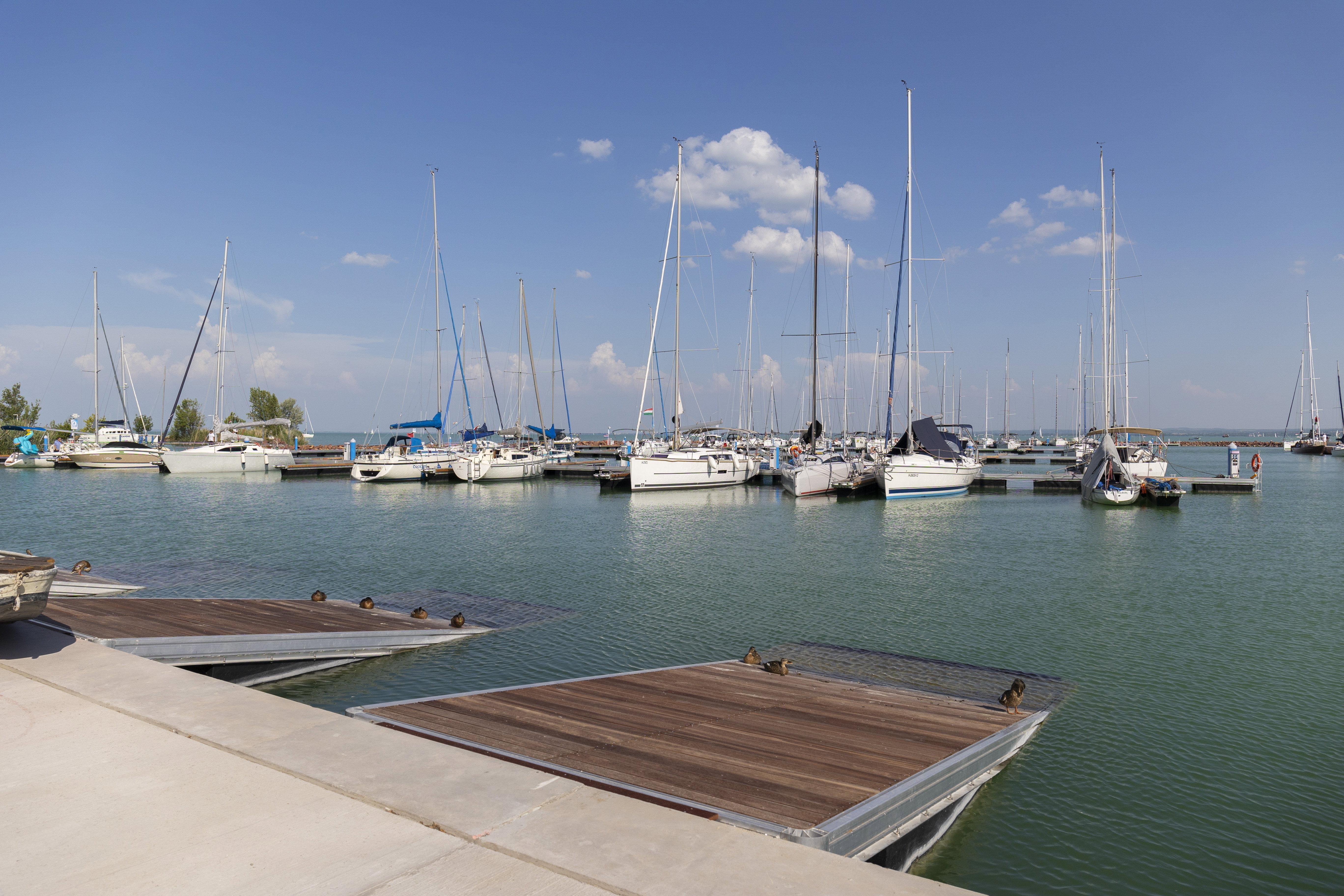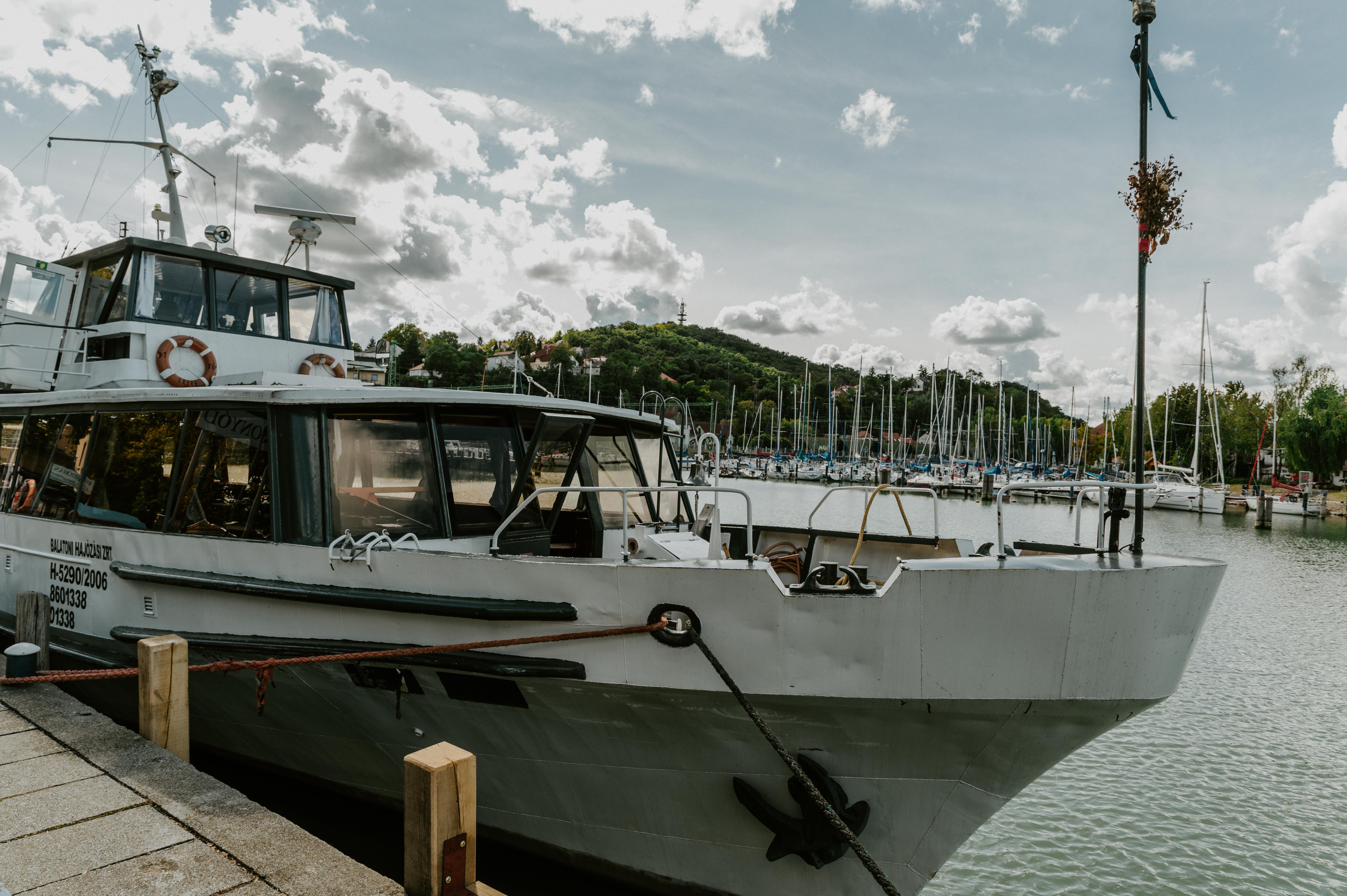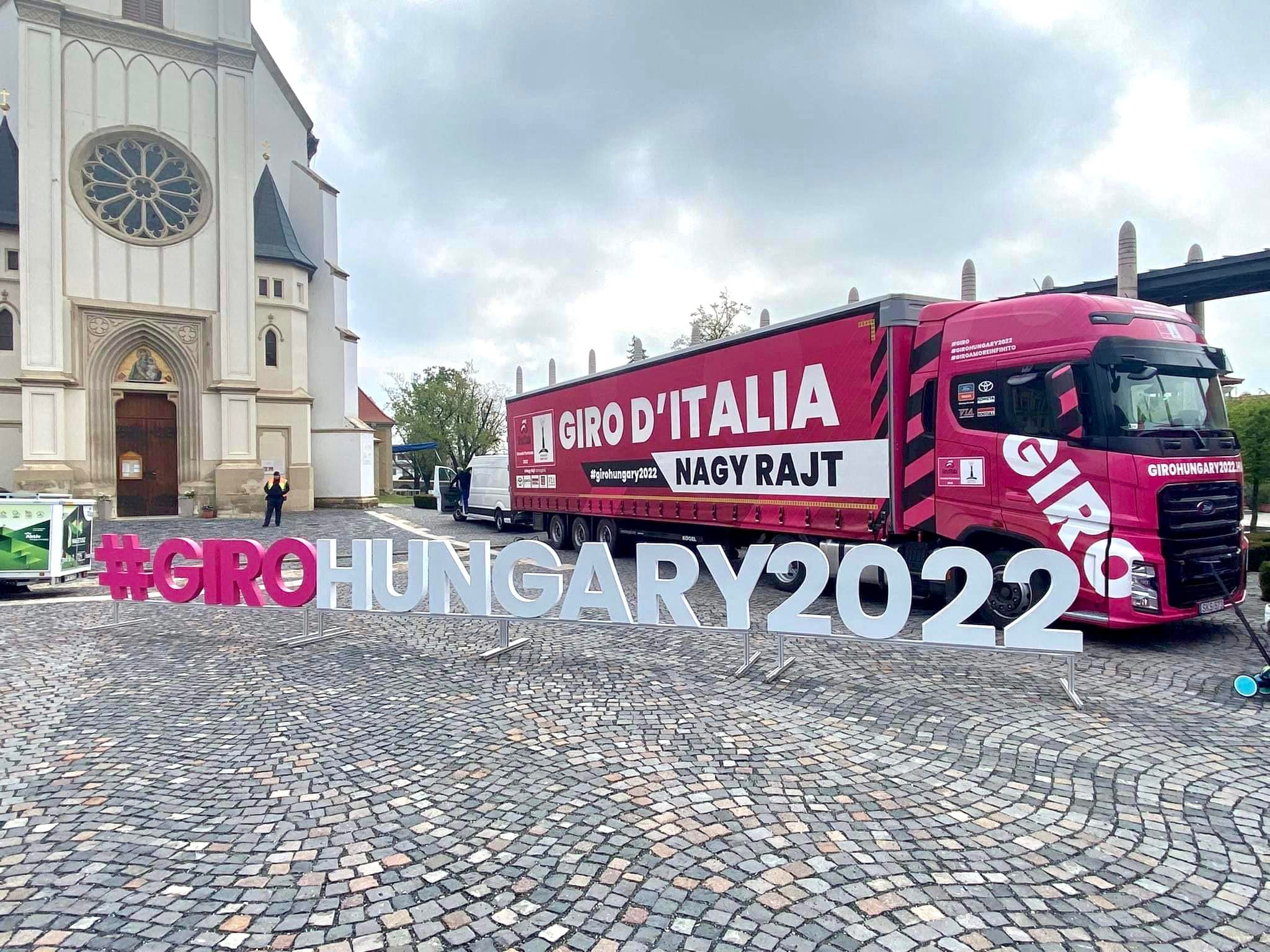The rainy summer might have been hard on holidayers but it was definitely harder on winemakers. According to the modest opinion, the result isn't catastrophic, but for example István Jásdi stated he wouldn't make a Codex wine from this year's crop. Recently, we visited the harvest at the Szászi Pince to see what an organic winery does with this year's accursed grapes.
It's OK from afar: the 365 gobelet-trained Weschriesing vine stocks look expressly good
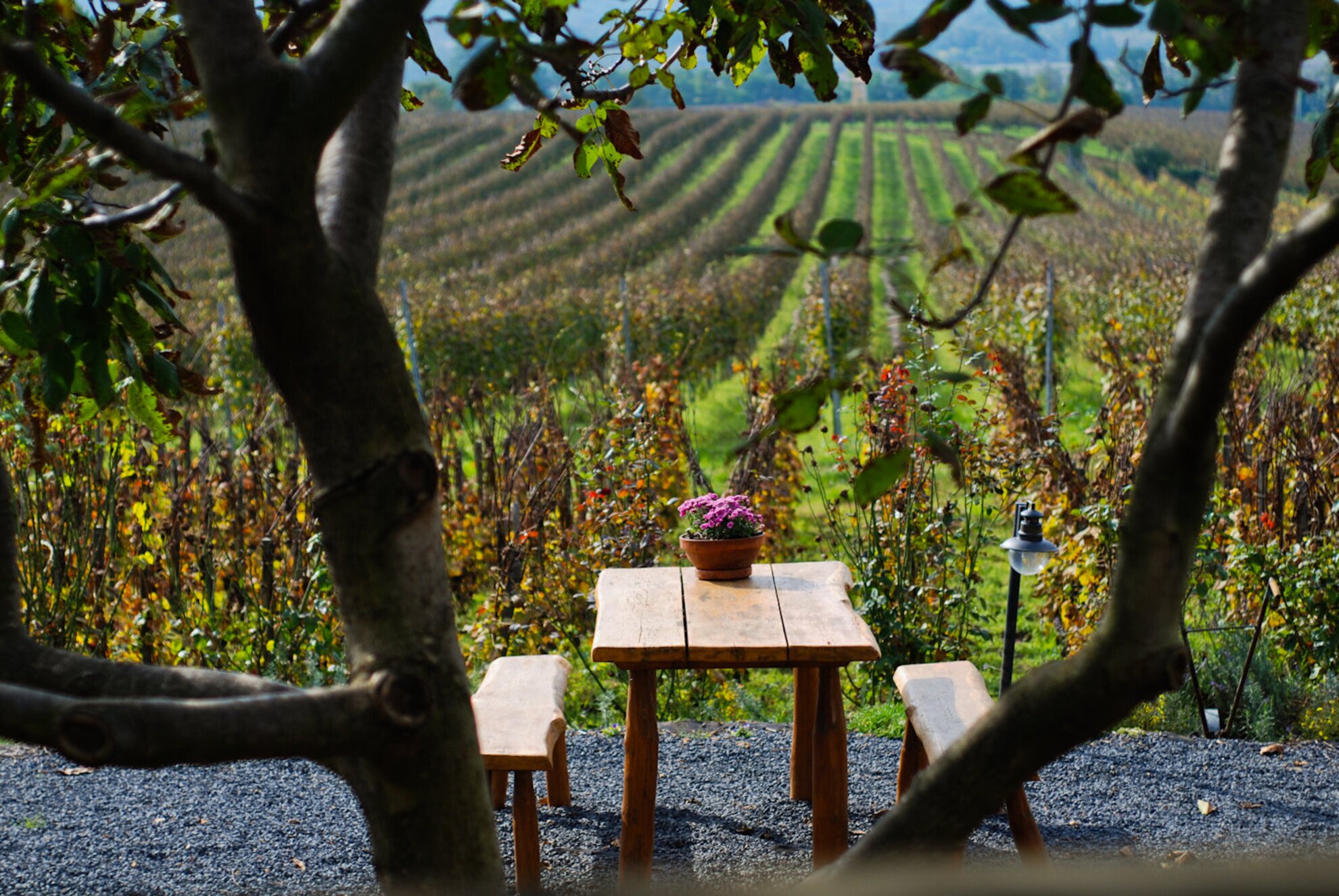
Photo: Sebestyén Blanka - We Love Balaton
The organically cultivated Cabernet sauvignon looks fine as well
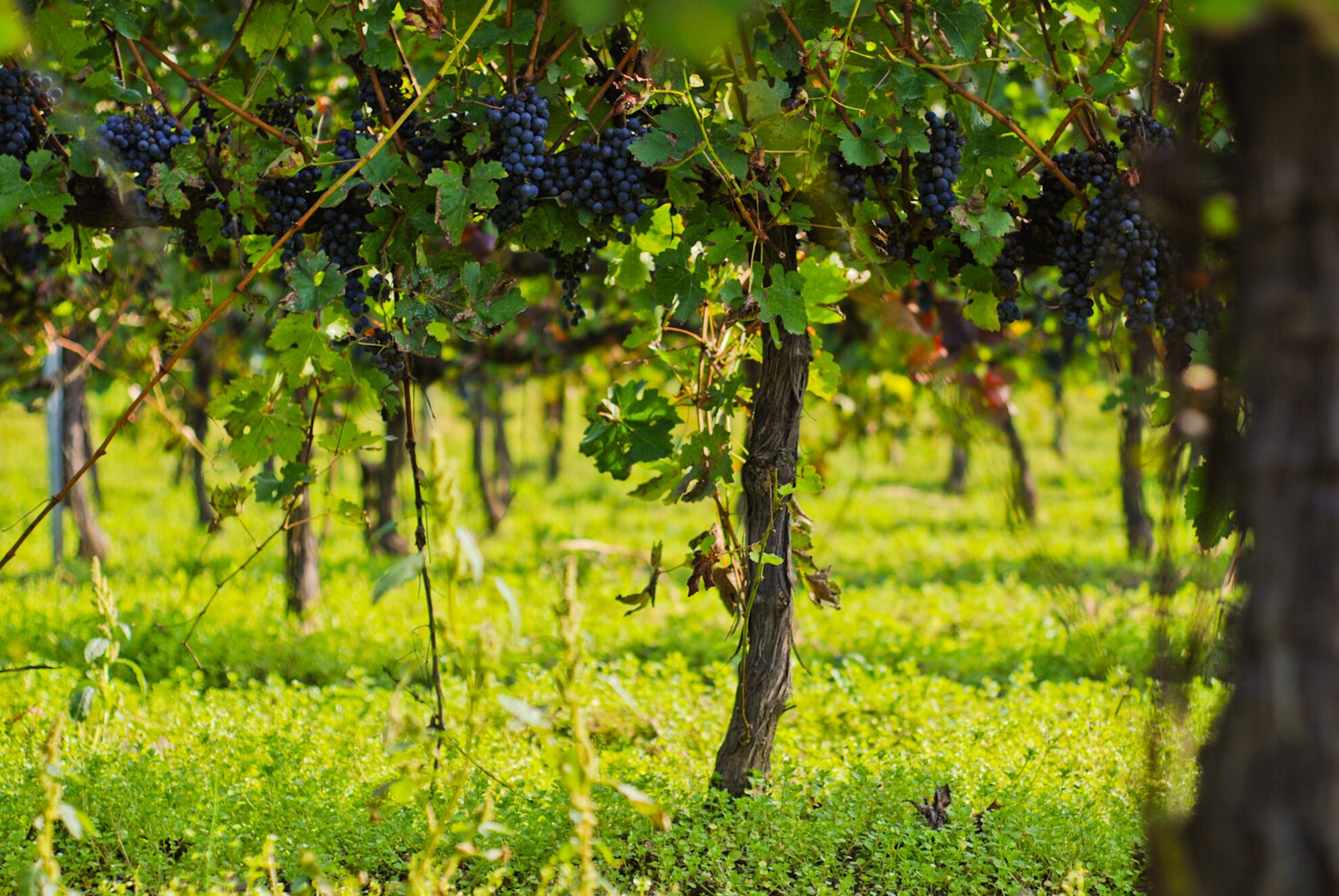
Photo: Sebestyén Blanka - We Love Balaton
The Kéknyelű is a sensitive variety and doesn't tolerate excessive rain well. Szászi told us that this bunch of grapes shows signs of 'hens and chicks' (millerandage) as a result of the cool, rainy weather
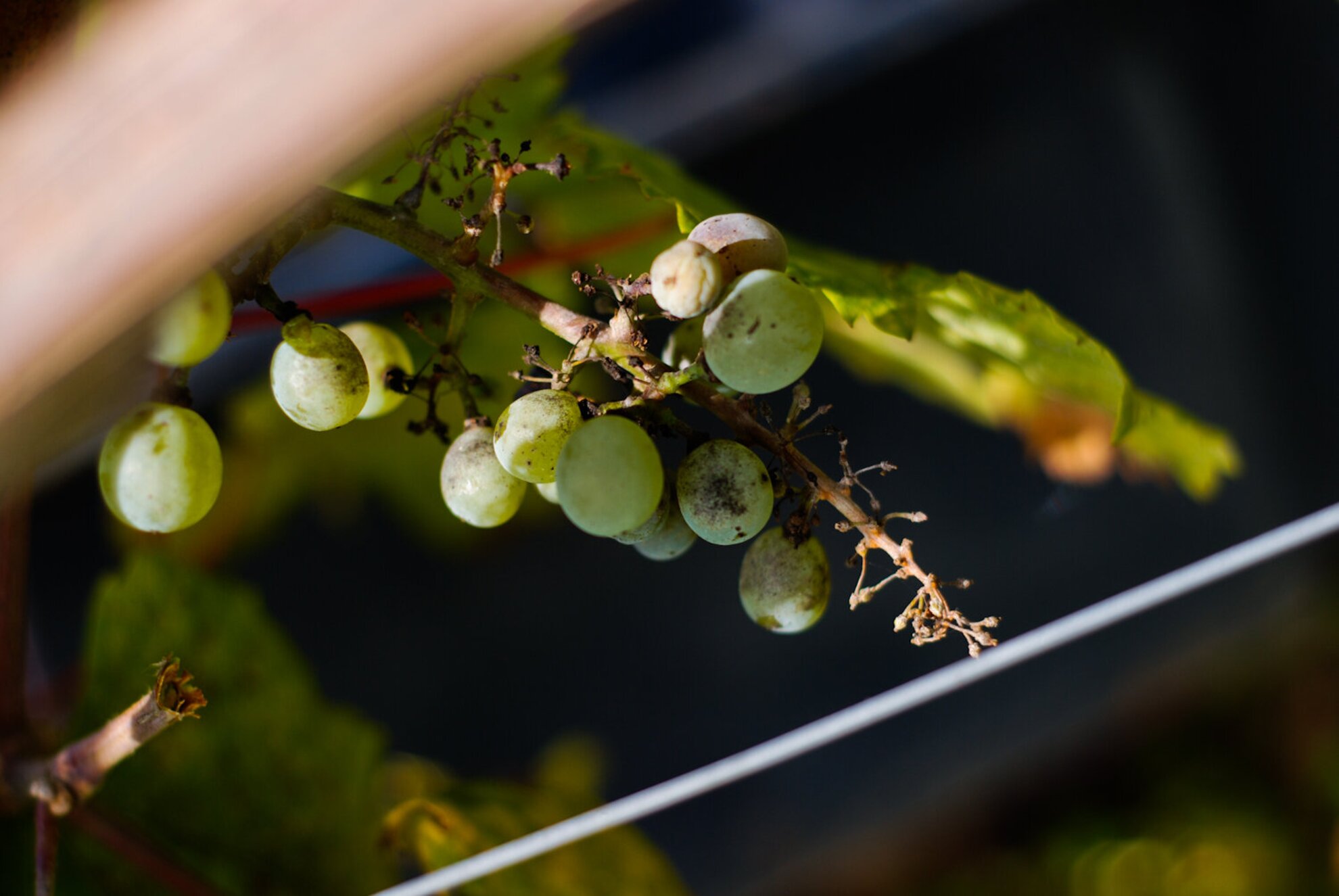
Photo: Sebestyén Blanka - We Love Balaton
The post-apocalyptic look of the picture is one thing, but notice the flowers that serve to supply the necessary amount of insects for organic protection
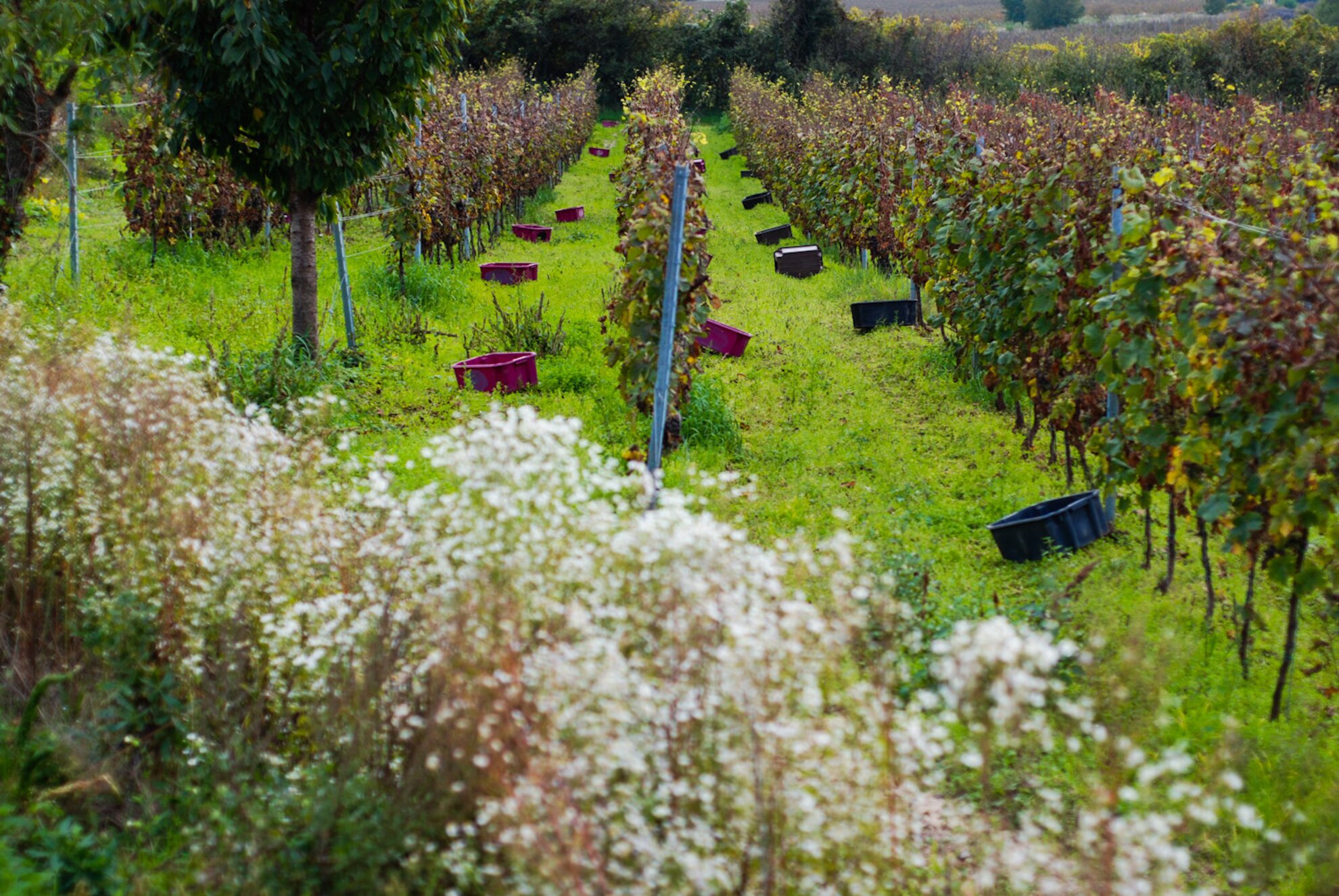
Photo: Sebestyén Blanka - We Love Balaton
Behold, the compulsory pic of the magnificent panorama
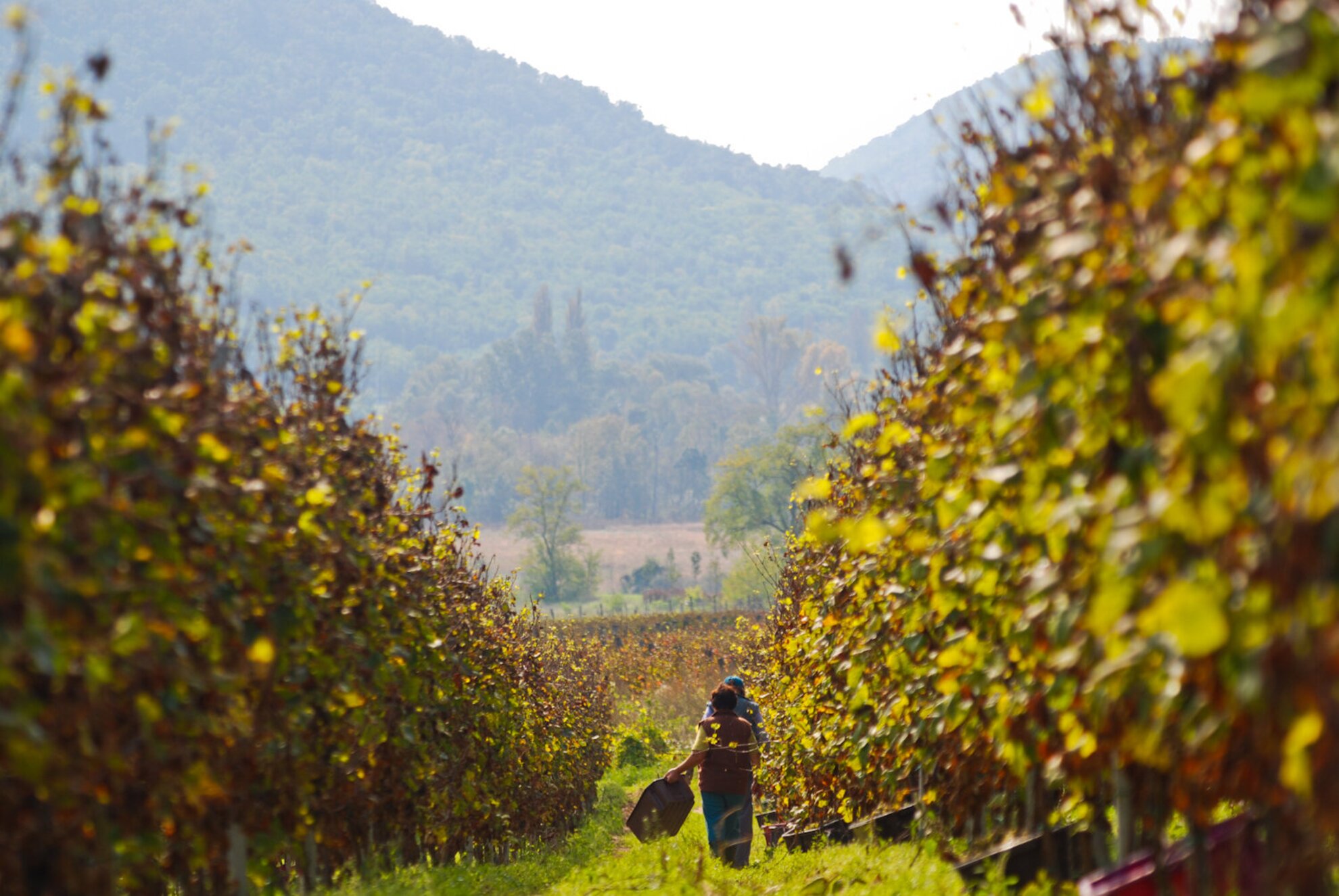
Photo: Sebestyén Blanka - We Love Balaton
OK, here's another one. The water in the background seems to be a model Balaton, but in fact it is groundwater flood
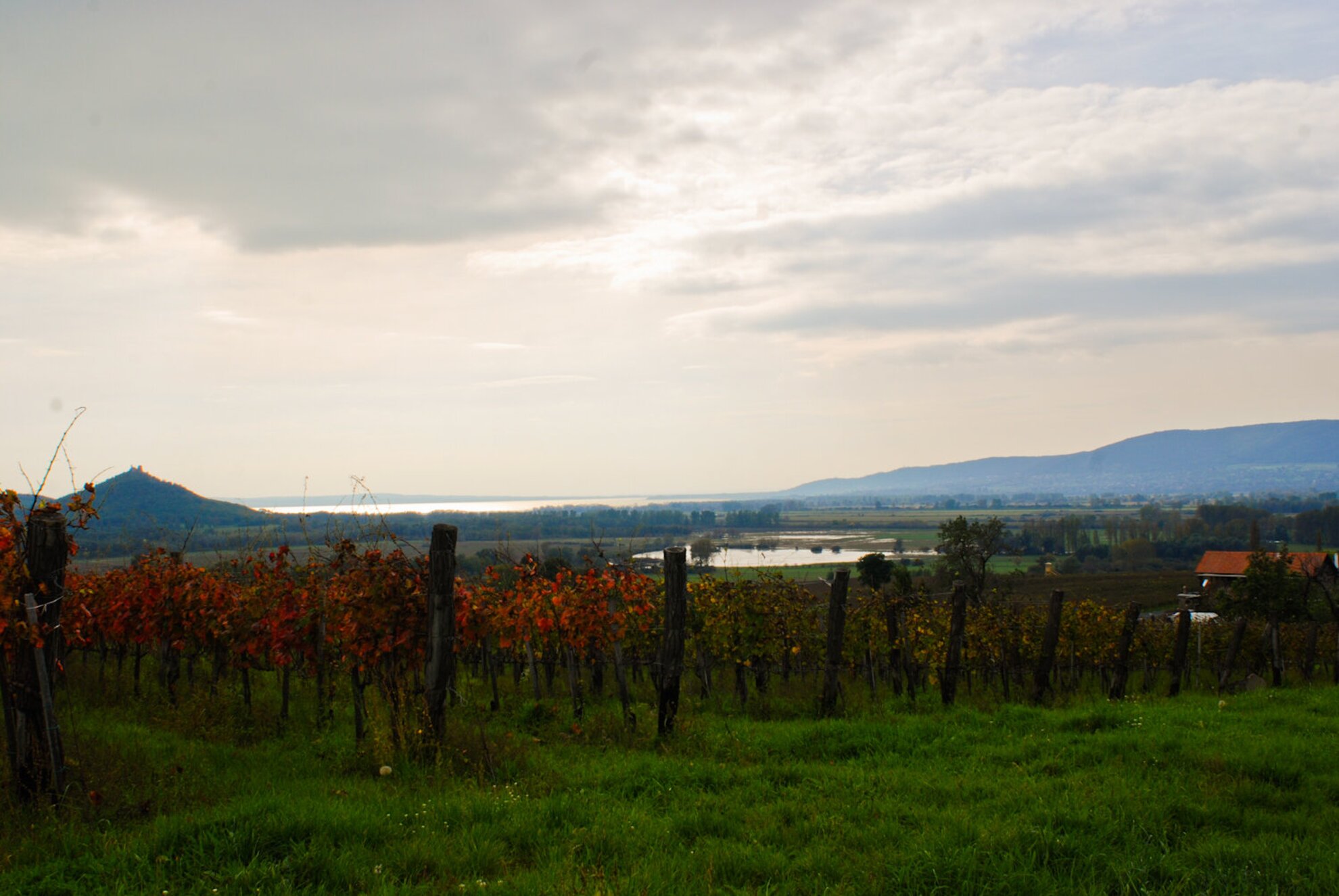
Photo: Sebestyén Blanka - We Love Balaton
The grape is transferred from the boxes as fast as possible
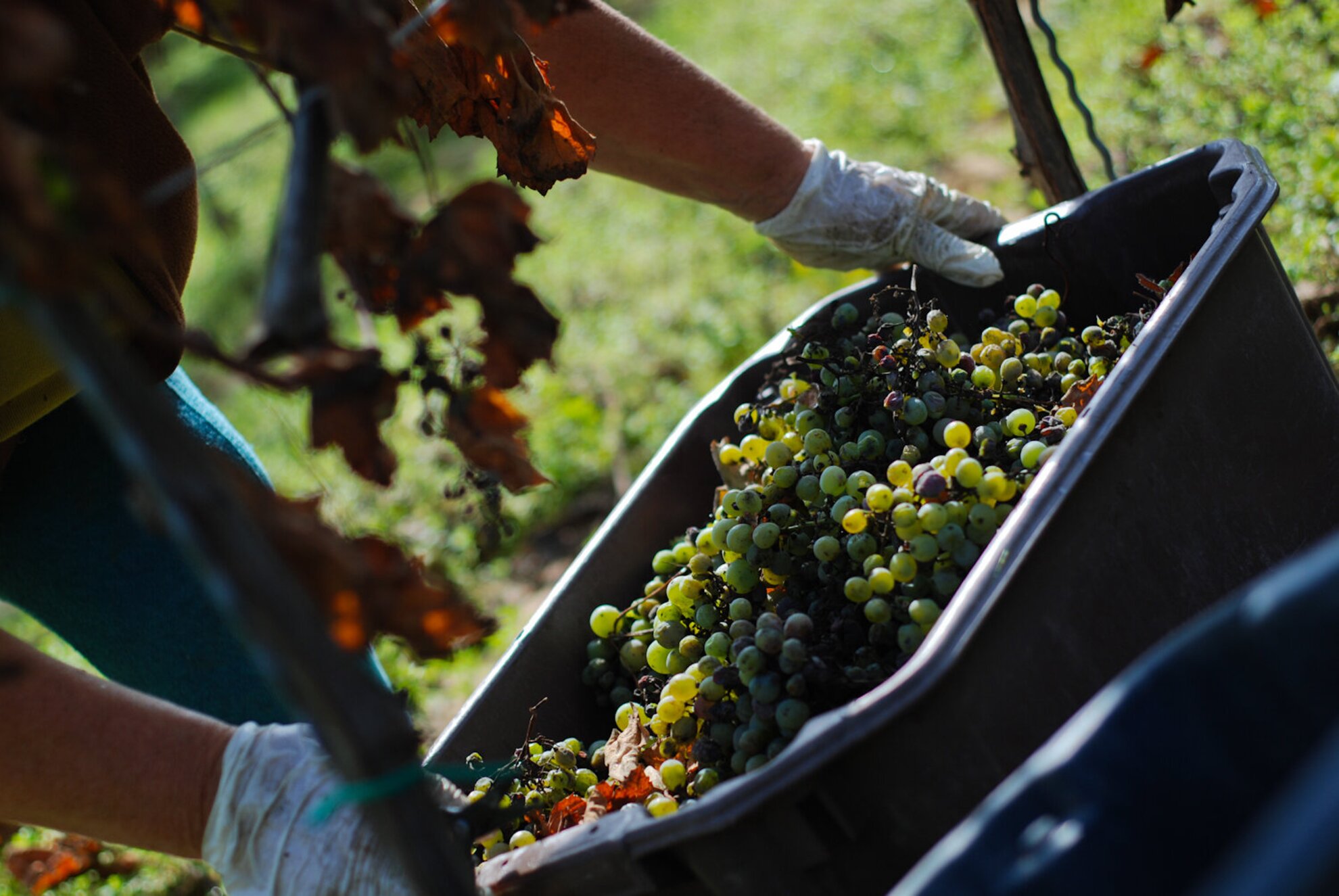
Photo: Sebestyén Blanka - We Love Balaton
...to the de-stemmer. And the helping hand in the process is a big gun, none other than...
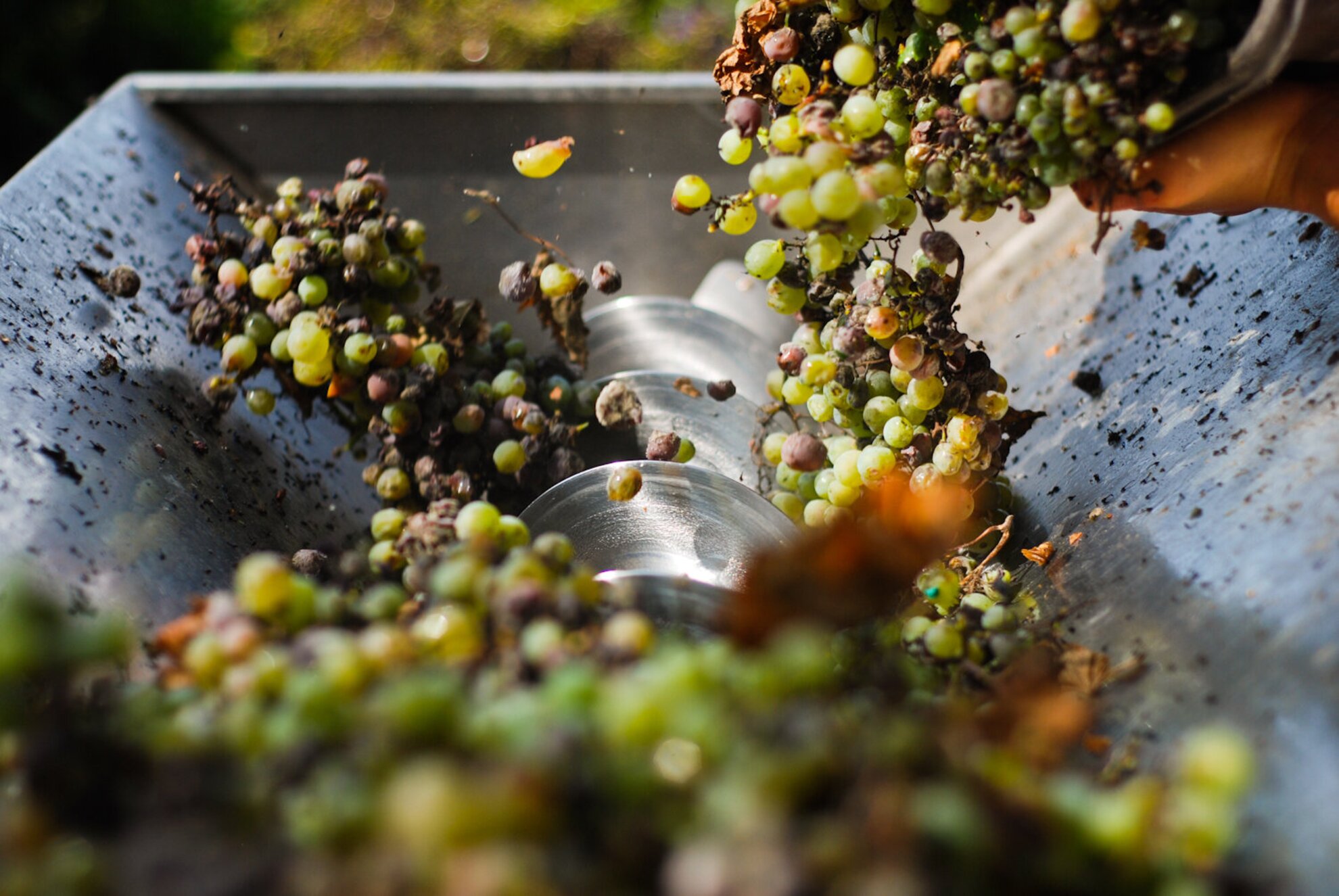
Photo: Sebestyén Blanka - We Love Balaton
a real Lamborghini.
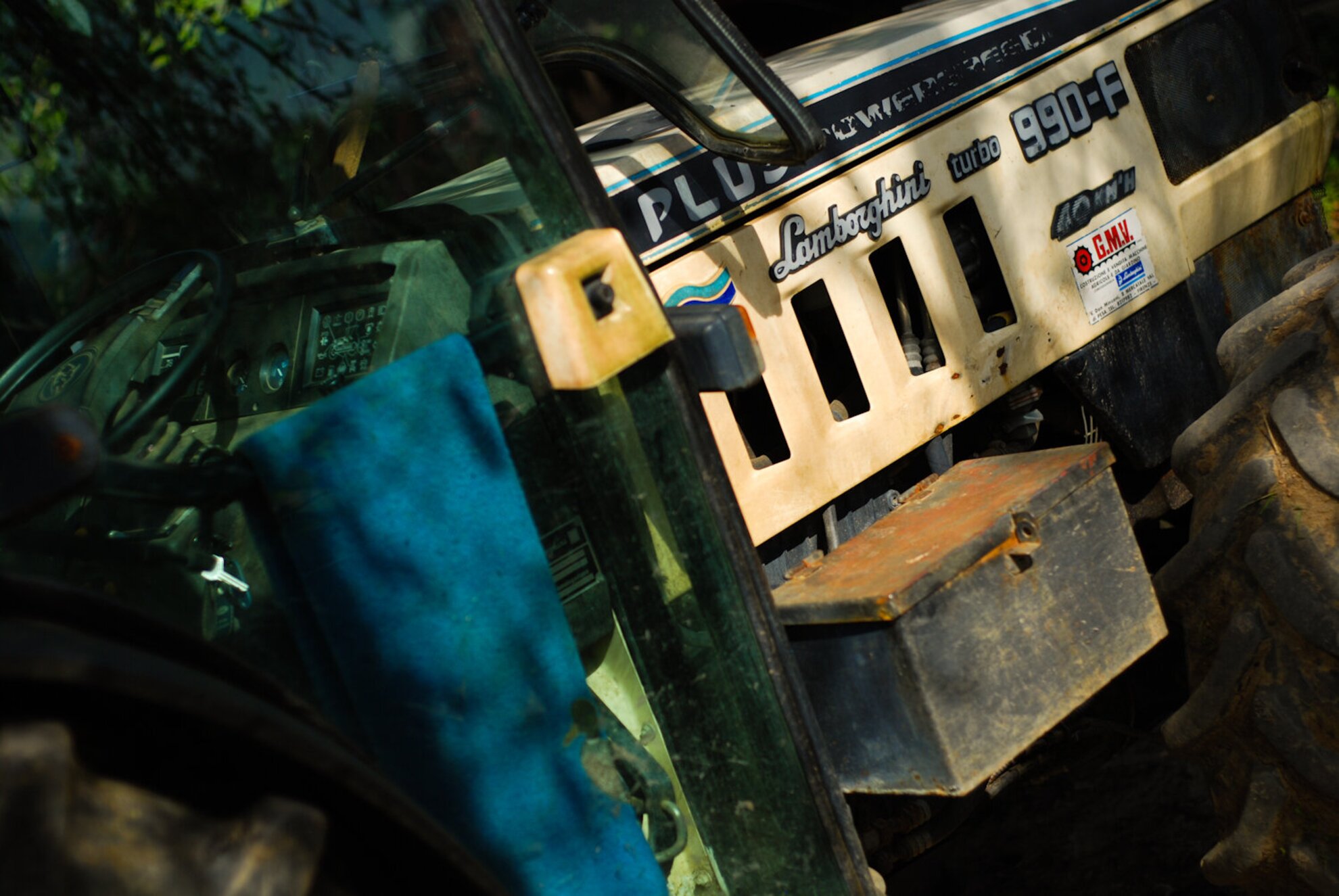
Photo: Sebestyén Blanka - We Love Balaton
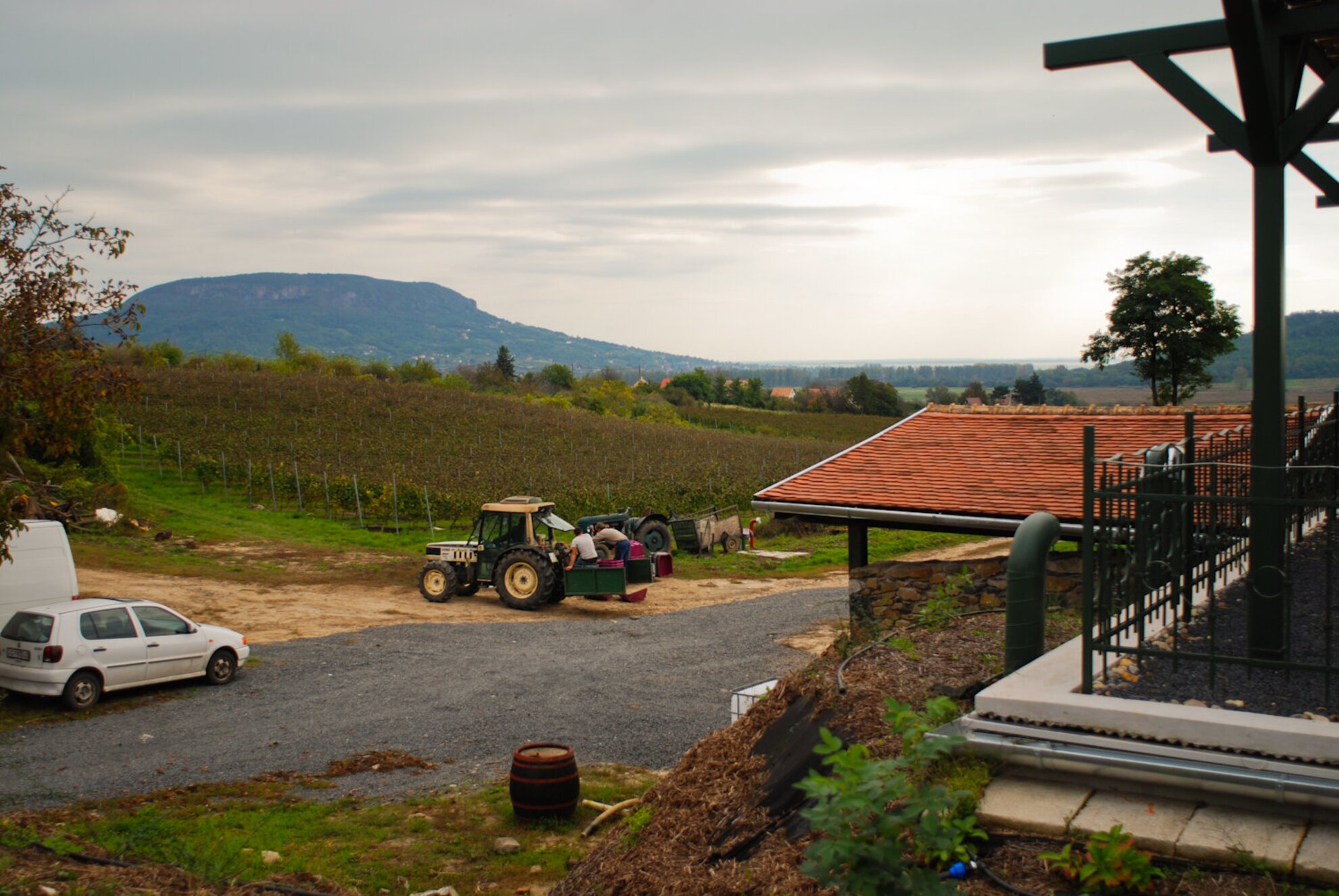
Photo: Sebestyén Blanka - We Love Balaton
The traditional press rests in peace
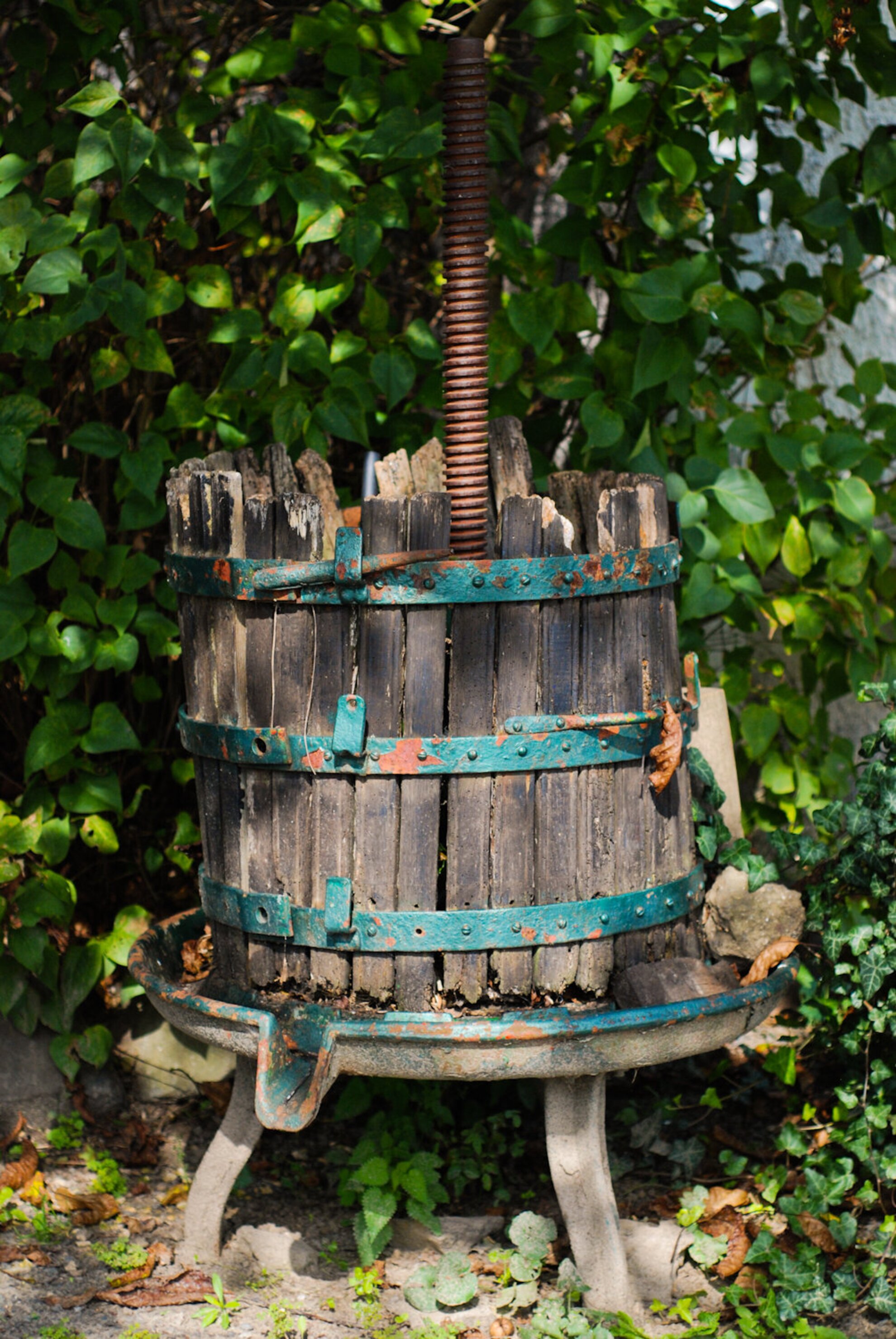
Photo: Sebestyén Blanka - We Love Balaton
...replaced in the process after the de-stemmer by the pneumatic press
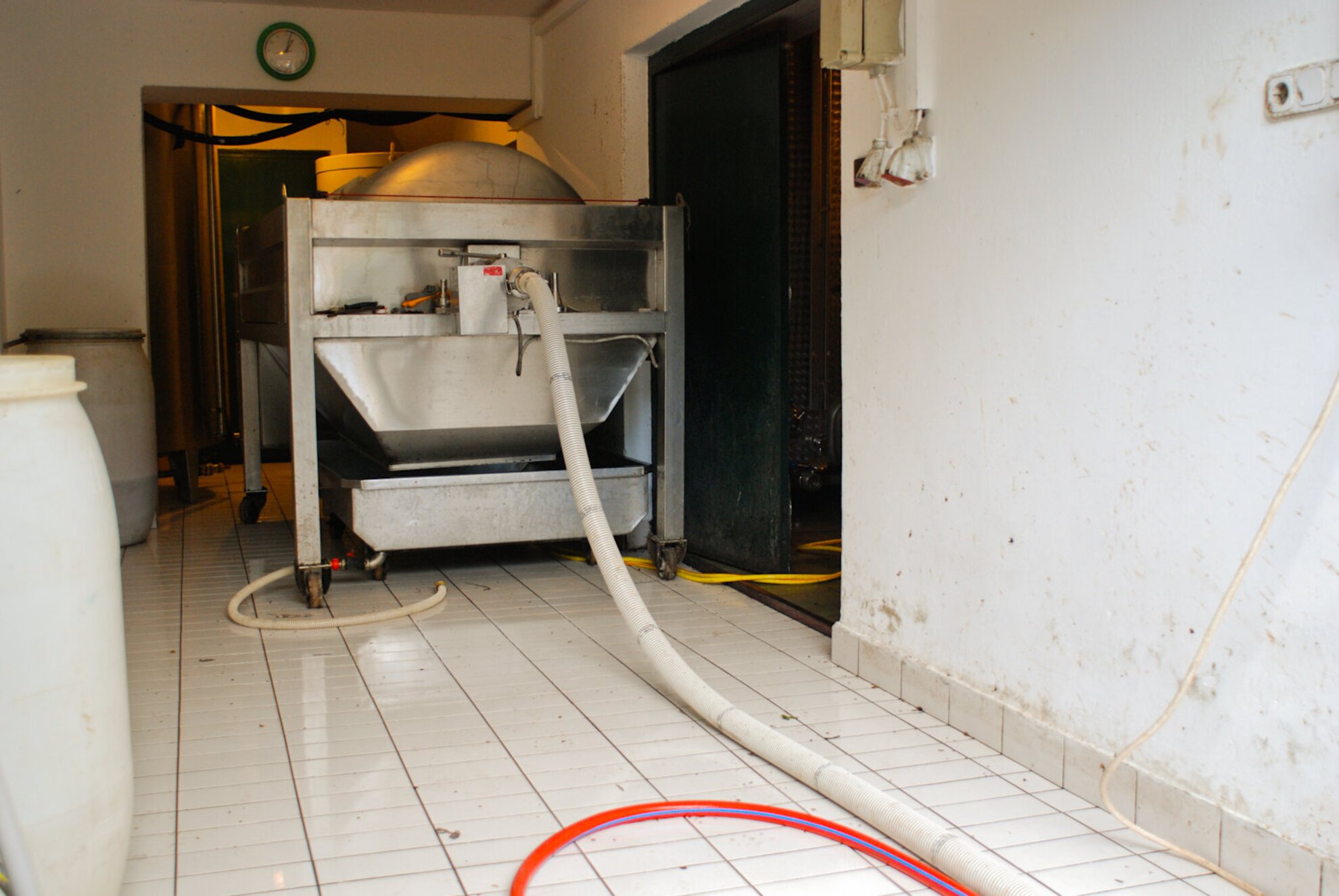
Photo: Sebestyén Blanka - We Love Balaton
And the end result will look something like this in a bit. At the Szászi Pince, the usual production of 500 hl...
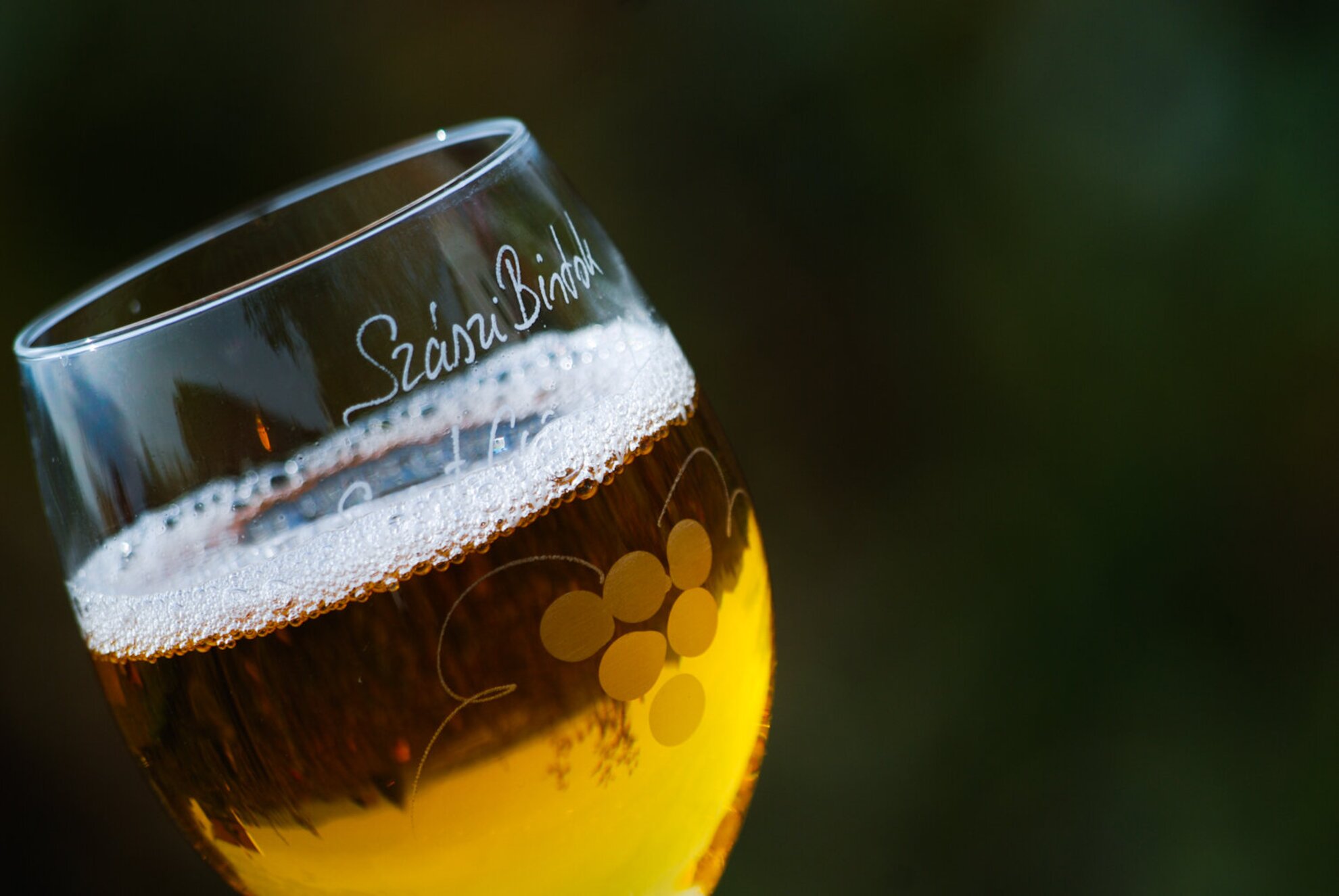
Photo: Sebestyén Blanka - We Love Balaton
...will be but 250 hl this year. According to the Szászi family, organic farming had a really hard time to adapt to the circumstances, but 'neither could other cultivation methods make miracles happen.'
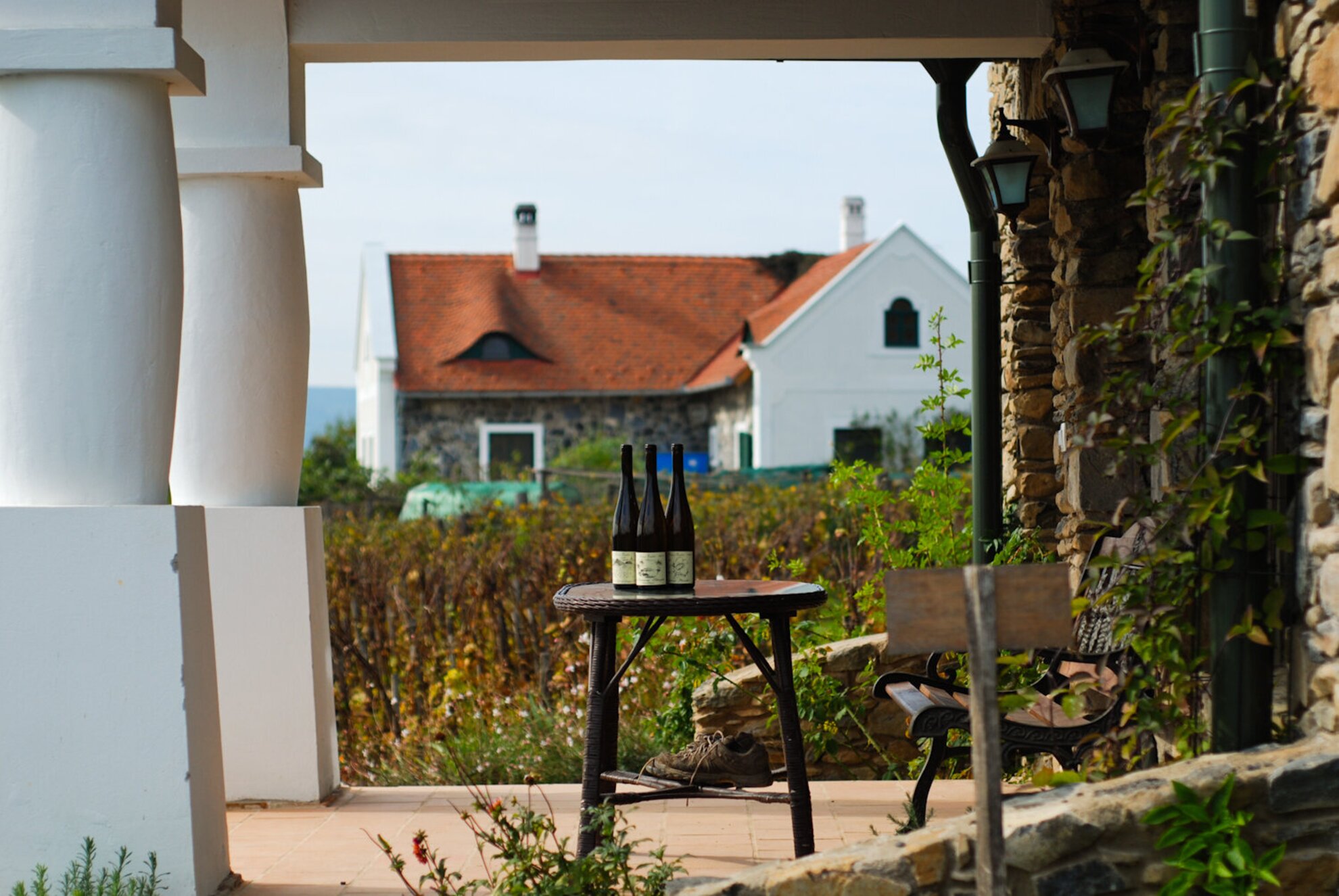
Photo: Sebestyén Blanka - We Love Balaton
This will not make it to wine: pomace is used to produce seed powder and oil. And the answer to the question that has just popped up in everyone's mind: no, here they don't make pomace pálinka, since pomace is too valuable as an organic raw material
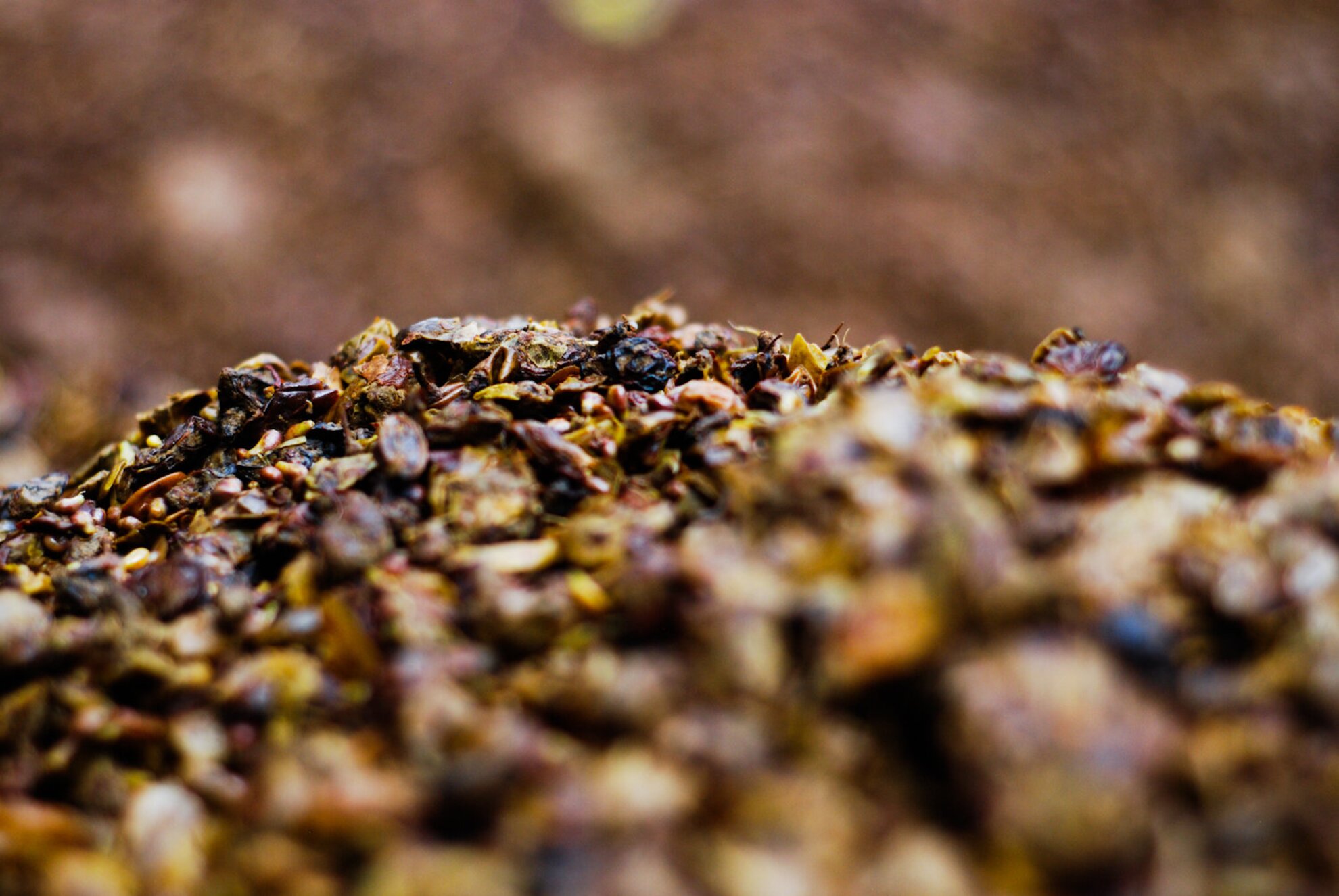
Photo: Sebestyén Blanka - We Love Balaton
At the end of the harvest, we could take a look at the vineyard from above
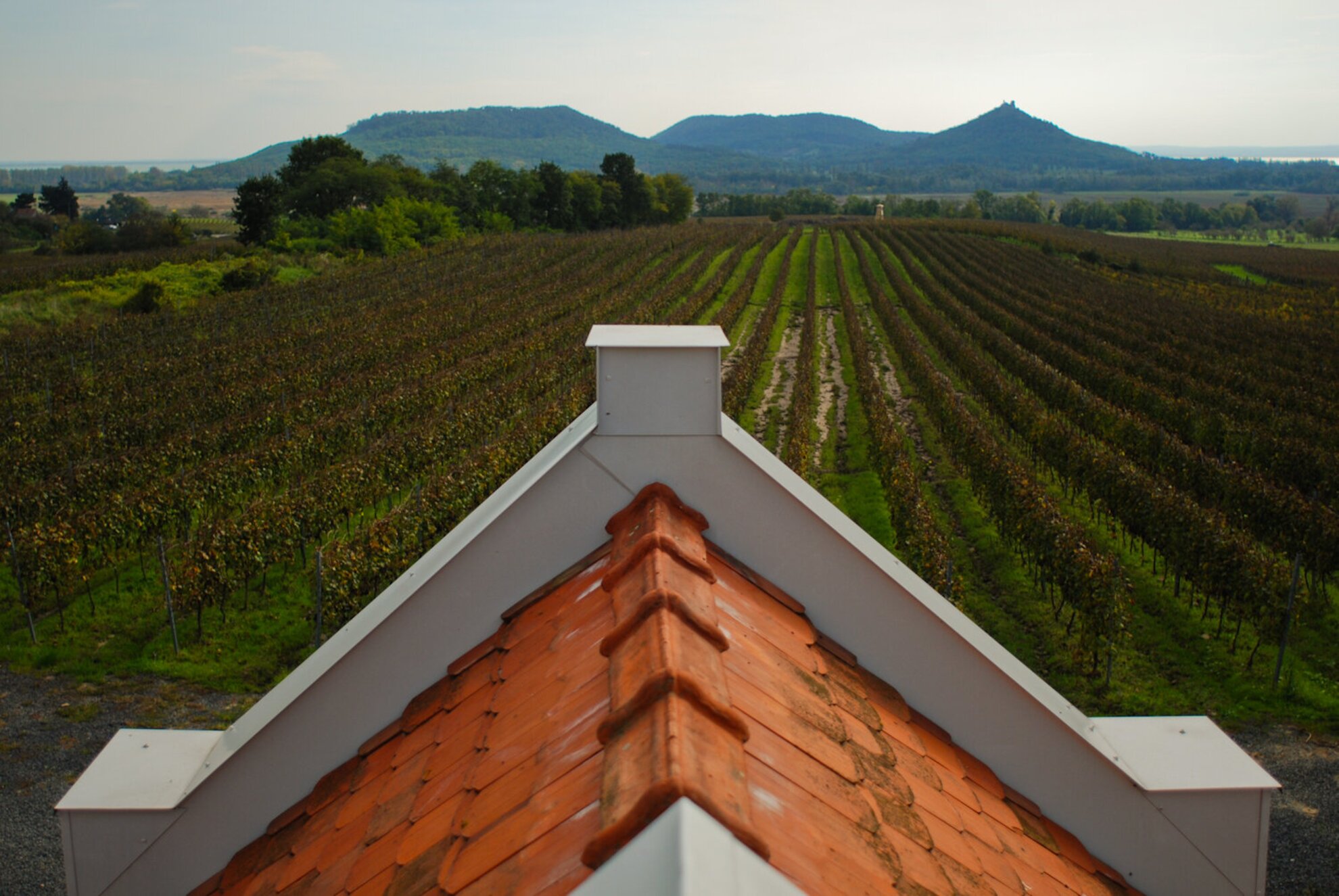
Photo: Sebestyén Blanka - We Love Balaton
